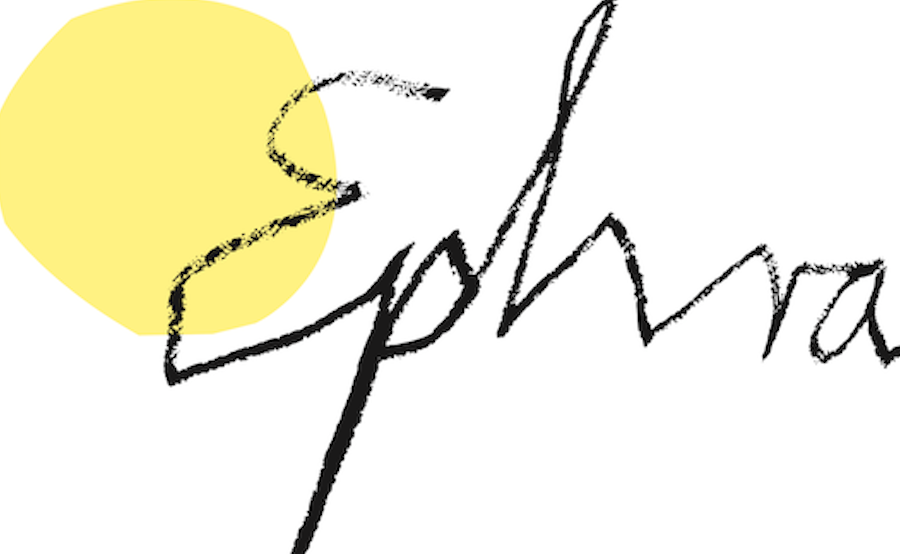Ana Prvački, the queen bee
Ana Prvački welcomes us beaming in her small (but fine) studio. She only speaks English, but some of us already know it very well and it’s fun to try out the language outside the classroom, in the real world. Ana calls her English “marinated English”, like when you marinate vegetables in lots of different herbs and oil, and the food absorbs the taste of everything. Ana’s mother is Romanian and her father Serbian, she grew up in Singapore, lived in the USA and in Spain. She also speaks French. That’s a lot to take in! It’s not so bad that she doesn’t speak German very well yet, with all these different stations. Her daughter is about the same age as us and is happy to help her with the translation.
It was always clear to Ana that she wanted to become an artist. Her mother is a ceramist and as a child Ana was allowed to knead the dry clay back to life in the bathtub with lots of warm water. She thought that was great. She also started making mini versions of all the ceramic objects her mother made. It must have looked pretty funny and we learn that humour is still an integral part of Ana’s art today. Her father was also an artist and both her parents always encouraged her to play a lot, to challenge others and to be a bit cheeky sometimes. And that’s what art means to Ana to this day: she finds play important especially for adults and she firmly believes that it’s always a good start to solving big problems.
Besides art, her family, her daughter and her cat are most important to Ana. Her cat often gives her advice – for example, Ana knows that she is too distracted when her cat doesn’t want to be near her. And when she cuddles up to her, Ana usually feels quite calm.
Animals and our relationships with them play a big part in Ana’s art, for example our relationship with bees. This has also run in the family for a long time – when Ana’s great-great-great-great grandmother married her great-great-great-great grandfather, she brought a colony of bees into the marriage. Since then, it has been passed down from generation to generation. When Ana’s grandfather died, he left her 500 kilos of honey, as well as an old honeycomb that we are even allowed to touch! Ana herself didn’t become a beekeeper, but deals a lot with bees in her art. She also reveals to us that she now feels a bit like a bee herself – the insects love to pollinate as many different plants as possible and Ana is also happiest when she is working on many different projects and always learning about new things. (Later we discover that even the tiles in Ana's bathroom look like the inside of a honeycomb!)
With her art, drawings, videos, virtual reality projects and performances, Ana wants to make people aware of the importance of bees and their impending extinction. After all, they are responsible, among other things, for growing fruits and vegetables that are vital for us. In some parts of the world, however, there are so few bees left (for example, because they are only allowed to pollinate one type of plant, which makes them sick) that humans take over their job in pollination: With small brushes or cotton swabs, they touch one flower after another and pass on the pollen. We find this idea absurd, funny and depressing at the same time. In response, Ana has developed her own pollination glove with small objects attached to the fingertips. Many of the objects are more symbolic – a mini bull, for example, represents the great power bees have despite their tiny size, and little bells are meant to prepare the plant for being about to be pollinated (bumblebees do this through their vibrating buzz). But there are also feathers, for example, which we can very well imagine would actually do the job.
Ana then invites us to create our own pollinator gloves. From a wide range of materials, we make colourful specimens that can not only help with pollination, but also look pretty crazy. With our artworks in our luggage, we walk together to a park around the corner and get up close and personal with the few blossoms we can still discover here in autumn. The bees also seem to have largely gone into hibernation, where they keep each other warm in their hives. All the better that we are here now, and in full gear!








